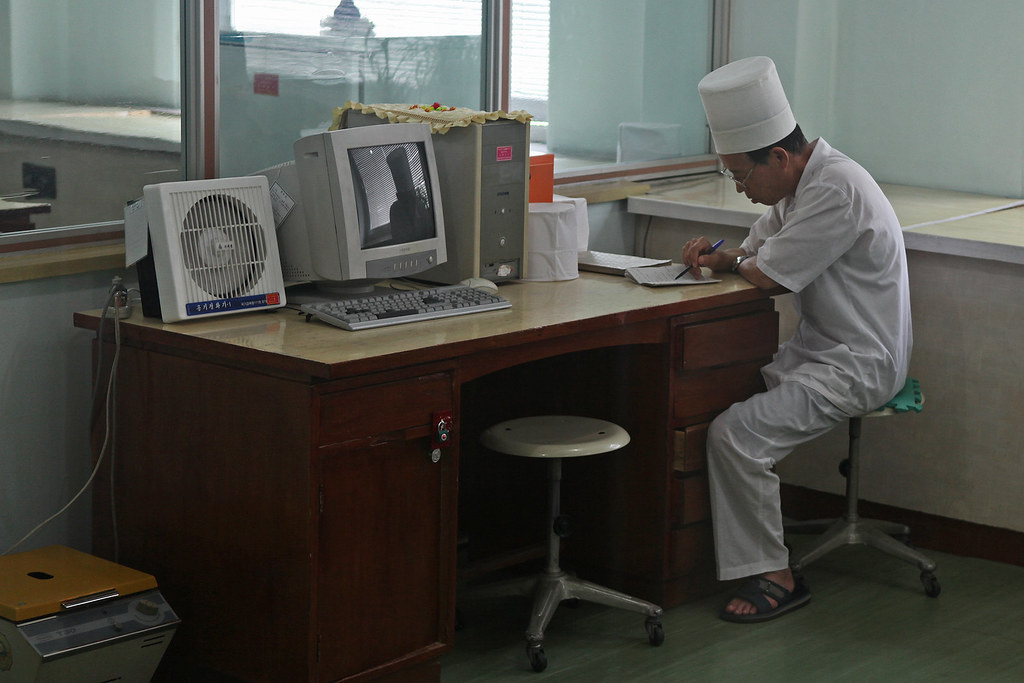As North Korea continues to face electricity shortages, North Korea’s General Political Bureau (GPB), which exerts political control over the North Korean military, recently published a document that ordered the military’s clinics to step up energy conservation efforts.
The document, entitled “Electricity Conservation Saves Water and Coal,” was released on Dec. 6. It was published after a Dec. 3 order by the North Korean military’s general staff to reduce electricity consumption in military hospitals.
TAKING AIM AT MEDICAL CLINICS
Specifically, the document stated that military medical facilities require 3.2 kilowatts of electricity to operate syringe disinfection devices for four hours per day. This, it concluded, would mean that nearly 600 kilograms of coal would be needed per year just to disinfect syringes.
The North Korean military’s medical infrastructure includes not just hospitals but also smaller clinics on military bases. These clinics treat soldiers who suffer medical issues during military training and in their daily lives. The clinics have rooms to care for patients and also conduct vaccinations.
Sources told Daily NK that the GPB is asking the country’s military medical corps to save electricity by not disinfecting syringes but, at the same time, demanding that they effectively care for their patients.
“Some military officials are questioning whether the GPB should be including military base clinics as part of its plans to reduce energy consumption given that they aren’t large hospitals,” a Daily NK source said.
ELECTRICITY SHORTAGES CONTINUE TO PLAGUE MILITARY
As the military began its winter military exercises in early December, there have been signs that the country’s poor electricity situation is negatively impacting both the training and meals provided to soldiers.
“Power shortages have prevented some military units from using their mechanized equipment,” another Daily NK source said. “Soldiers can’t use rice cookers that often because of the lack of power. They have to rely on more ‘old school’ methods such as using cauldrons to cook food. This has delayed meal times to the extent that some units are eating dinner after 10 PM.”
*Translated by Gabriela Bernal
Please direct any comments or questions about this article to dailynkenglish@uni-media.net.

















